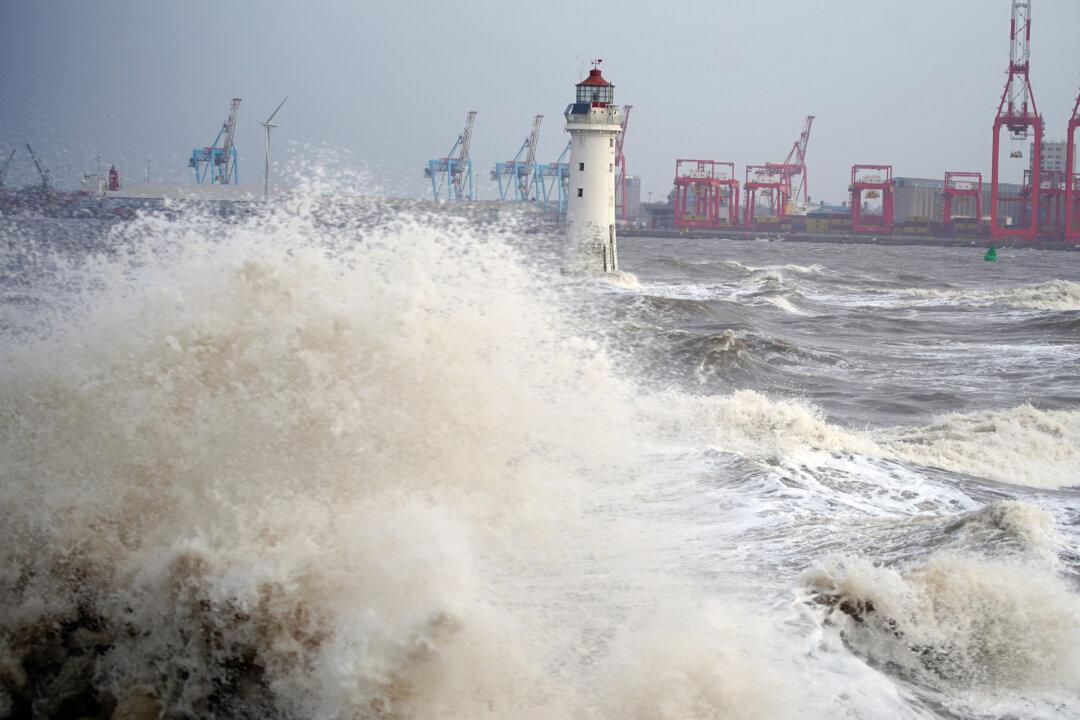Constant weather warnings could lead to the public ignoring them, according to a top forecaster.
Liz Bentley, the chief executive at the Royal Meteorological Society, said over the past week “probably not a day has gone by without a weather warning.”
The country has faced not one but two named storms—Storm Jocelyn which brought fresh travel disruption to much of the UK, less than two days after Storm Isha, bringing with it multiple weather warnings.
She added that “if we constantly have yellow warnings out for something people will start to ignore them.”
The Epoch Times has not been able to independently verify Ms. Bentley’s comments in The Telegraph.
Named Storms
The Met Office has issued amber and yellow weather warnings for wind covering much of the UK, together with yellow warnings for rain covering parts of western and southern Scotland, and north-west England.A yellow warning for ice has also been issued across northern and eastern parts of Scotland.
Gusts of 80mph could be experienced in exposed areas, with 40-50mm of rain possible over higher ground, the forecaster said.
Storm Jocelyn is the tenth named storm since Sept. 1, 2023 by the Met Office’s “storm naming group” which it does so alphabetically.
The Met says that storm naming was introduced in 2015 to “improve the communication of severe weather events.”
They say storms are named when they’re likely to cause “medium” or “high” impacts in the UK.
‘Politically-Driven Alarmism and Fearmongering’
However net zero critics say such measures are fearmongering which will “undermine” forecaster’s own authority.Researcher Ben Pile, who runs the campaign group Climate Debate UK, told The Epoch Times by email he believed that Ms. Bentley’s claim that people will become desensitised to weather “is far from a criticism of the politically-driven alarmism and fearmongering.”
“She is merely seeking to find an optimum degree of nudge, not challenge the nudging,” he said.
The techniques are pioneered by The Nudge Unit, also known as The Behavioural Insights Team (BIT), which was established in the Cabinet Office in 2010 by former Prime Minister David Cameron’s government to apply behavioural science to public policy.
The profit-making company was third owned by the Cabinet Office until the shares were sold to the innovation foundation NESTA last December.
Mr. Pile said that in the past, weather warnings were simply the weather forecast, but the climate agenda now requires agencies such as news broadcasters and the Met Office to “emphasise seemingly ‘extreme’ weather as political messaging.”
“In 2015, the Met Office began naming storms and more recently started issuing more dramatic alerts to make events seem more frightening, including ’threat to life' statements to better dramatise the climate story. Weather isn’t allowed to be just weather any more. Fearmongering seeks to create a sense of vulnerability and then capitalise on it,” he said.
“But fear wears off because for the vast majority of people, even ‘extreme weather’ in the UK is merely a nuisance, not the ‘new normal’ that is often claimed,” he said.
He said that the tragic consequences of storms that do happen are extremely rare when seen at the level of the country, or when compared to the impact of storms in the past, or when compared to society’s other problems, including homicide and suicide, drug use, and so on.
“But ultimately, the tragedy is that weather forecasters will undermine their own authority. That is what should concern Ms. Bentley about nudges,” he added.
The Epoch Times contacted The Met Office for comment.






